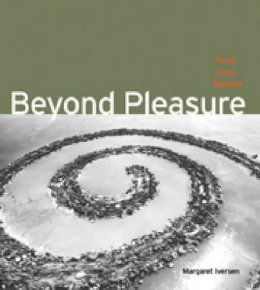
Stock image for illustration purposes only - book cover, edition or condition may vary.
Beyond Pleasure: Freud, Lacan, Barthes
Margaret Iversen
€ 70.85
FREE Delivery in Ireland
Description for Beyond Pleasure: Freud, Lacan, Barthes
Paperback. Uses the writing of Freud, Lacan, the Surrealists, and Roland Barthes to elaborate a theory of art beyond the pleasure principle. Lacan was in close contact with the Surrealists and, early in his career, exchanged ideas with Dali. This book offers a reading of Dali's "paranoiac-critical" tour de force, "The Tragic Myth of Millet's Angelus". Num Pages: 272 pages, 24 colour/12 b&w illustrations. BIC Classification: ABA; JMAF. Category: (P) Professional & Vocational; (UP) Postgraduate, Research & Scholarly. Dimension: 241 x 203 x 15. Weight in Grams: 762.
In Beyond the Pleasure Principle, Freud observed that the life-enhancing pleasure principle seems disrupted by something internal to the psyche. He took into account the possibility of a “death instinct” bent on returning the living organism to its origin of undifferentiated matter. In Beyond Pleasure: Freud, Lacan, Barthes, Margaret Iversen uses the writing of Freud, Lacan, the Surrealists, and Roland Barthes to elaborate a theory of art beyond the pleasure principle. Lacan was in close contact with the Surrealists and, early in his career, exchanged ideas with Dalí. This book offers a detailed reading of Dalí’s “paranoiac-critical” tour de force, ... Read more
Show LessProduct Details
Publisher
Pennsylvania State University Press United States
Number of pages
272
Format
Paperback
Publication date
2007
Condition
New
Number of Pages
204
Place of Publication
Pennsylvania, United States
ISBN
9780271029719
SKU
V9780271029719
Shipping Time
Usually ships in 7 to 11 working days
Ref
99-1
About Margaret Iversen
Margaret Iversen is Professor of Art History and Theory at the University of Essex.
Reviews for Beyond Pleasure: Freud, Lacan, Barthes
“This new book by Margaret Iversen is truly exceptional. Ranging across modern and contemporary art with remarkable adeptness, each of its chapters has a luster and perfection that reflects her profound knowledge of philosophical aesthetics and psychoanalysis. It is guaranteed to reinvigorate debate about art and psychoanalysis.” —David Lomas, University of Manchester “It is very well written, making difficult ... Read more
